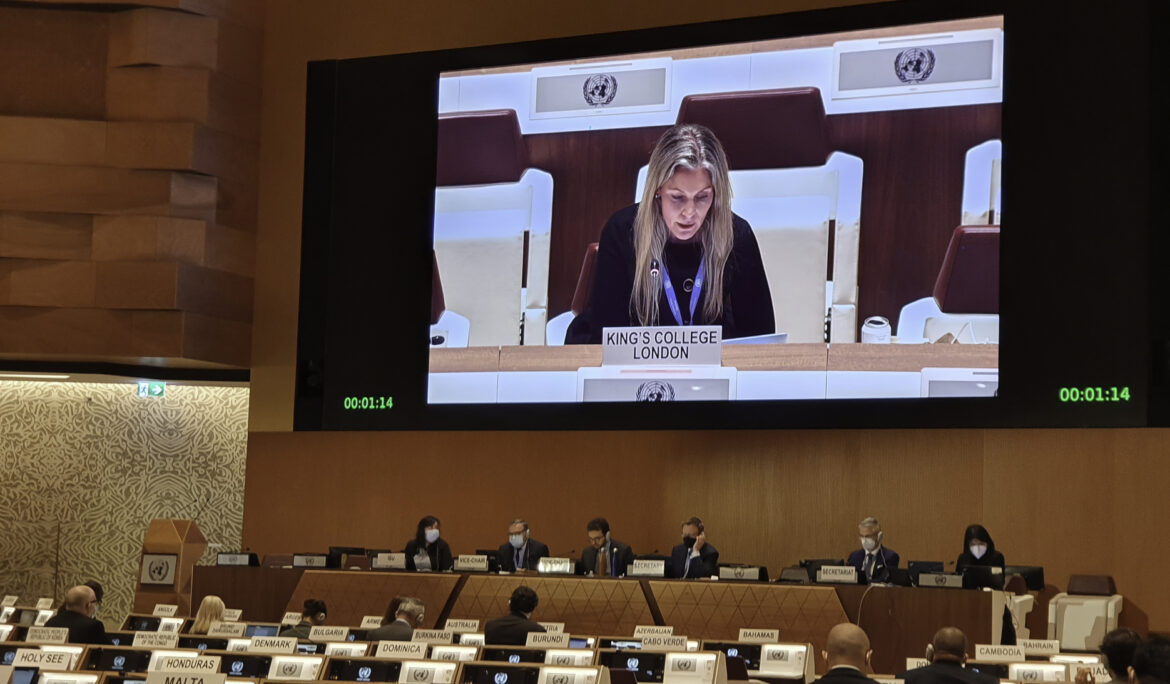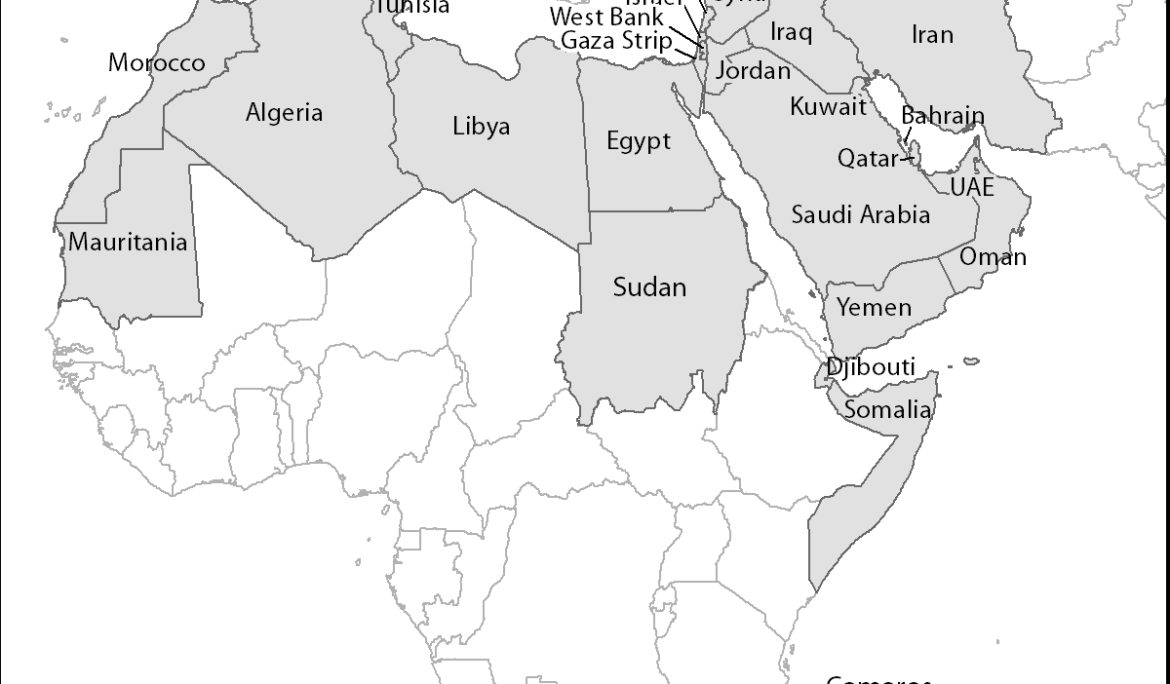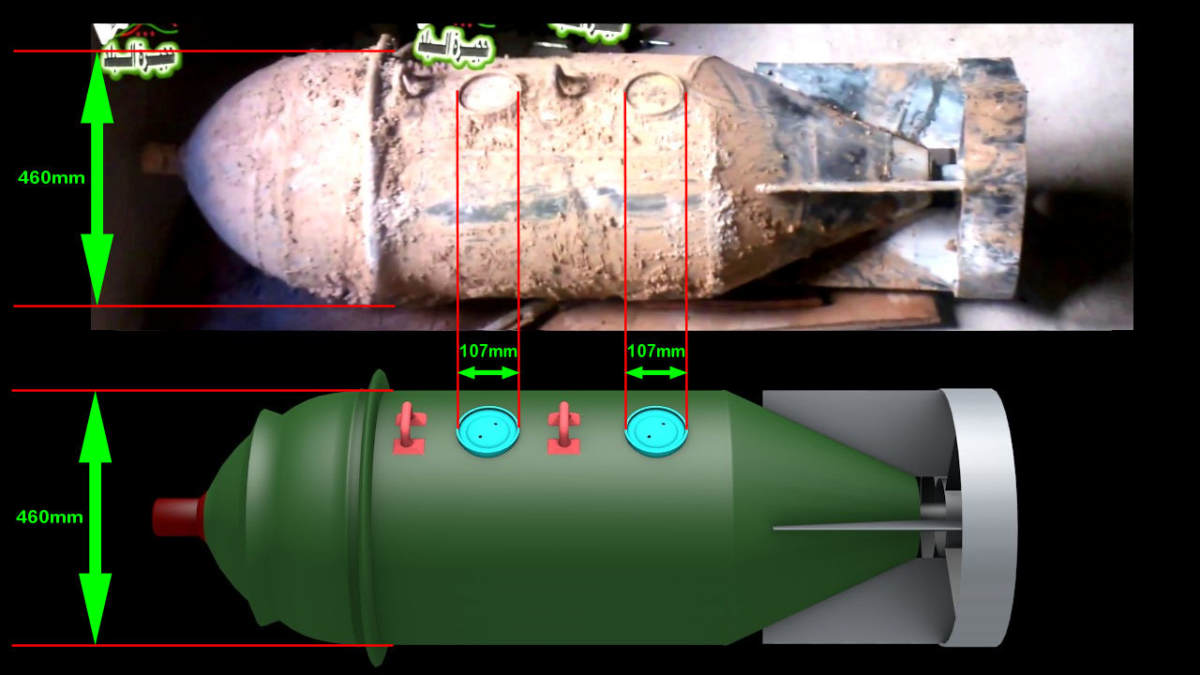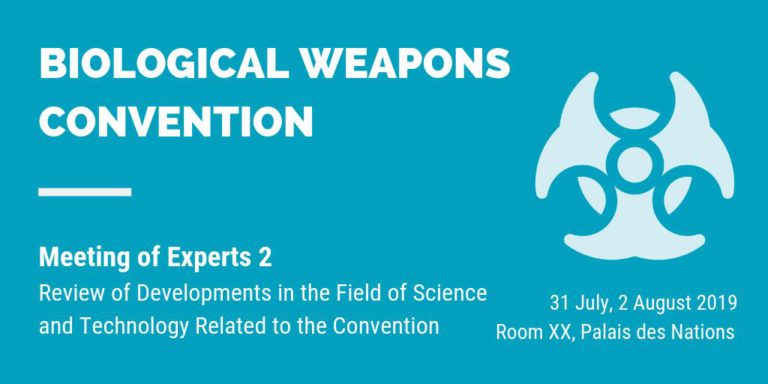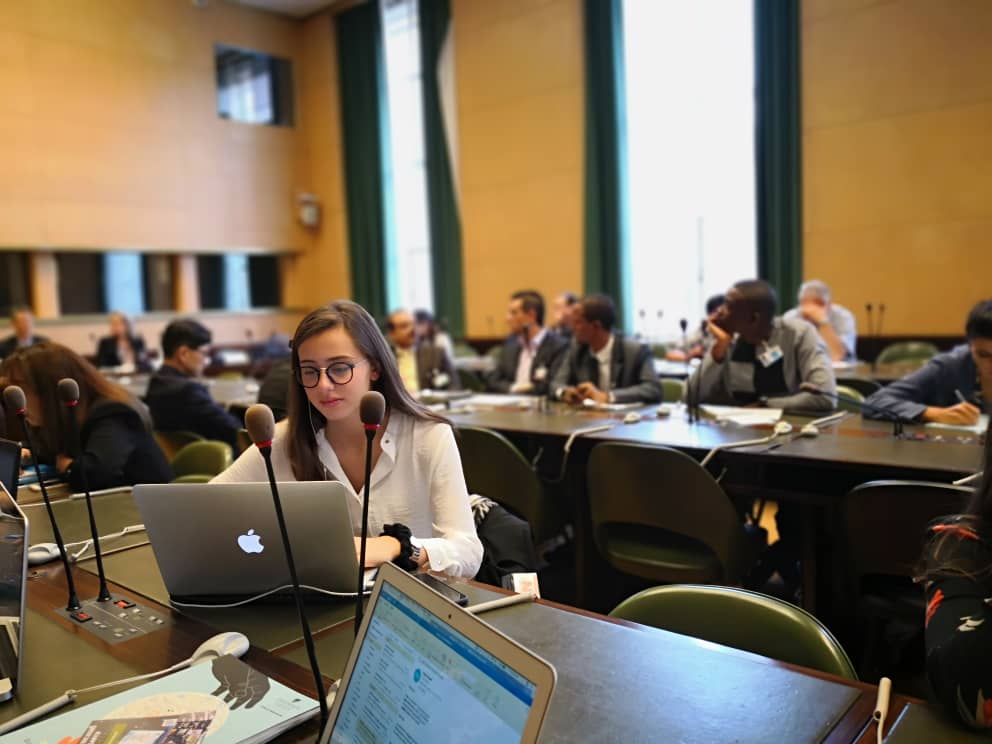Statement to Biological Weapons Convention Preparatory Committee, endorsed by The Trench
Statement to Biological Weapons Convention Preparatory Committee, Geneva 4 April 2022 Presented by Dr Filippa Lentzos, King’s College London Mr Chair, Distinguished Representatives: We condemn Russia’s unprovoked military invasion and its continuing war against Ukraine. We stand with the government and people of Ukraine, and we urge Russia to stop its brutal attacks. We echo the call by the World Health Organization, UNICEF and UNFPA to immediately cease attacks on hospitals, ambulances and medical staff.[1] It is an unacceptable strategy and tactic.[2] Mr Chair, Russia accuses Ukraine of working on biological weapons supported by the United States and other …
Regional security and the Chemical Weapons Convention: Insights for the Middle East (Part 2)
In November 2019, the first annual meeting exploring the possibility of creating a zone exempt of non-conventional weaponry in the Middle East took place. The COVID-19 pandemic forced the postponement of the second meeting in 2020. Conditions permitting, the session is now scheduled for this autumn. Meanwhile, the conference has organised two informal workshops, the second one of which was held virtually on 23-25 February. Entitled ‘Good Practices and Lessons Learned with respect to the implementation of Treaties establishing Nuclear-Weapon-Free Zones’, the workshop’s third session looked at the core obligations governing chemical and biological weapons (CBW). It aimed to glean …
Regional security and the Chemical Weapons Convention: Insights for the Middle East (Part 1)
In November 2019, the first annual meeting exploring the possibility of creating a zone exempt of non-conventional weaponry in the Middle East took place. The COVID-19 pandemic forced the postponement of the second meeting in 2020. Conditions permitting, the session is now scheduled for this autumn. Meanwhile, the conference has organised two informal workshops, the second one of which was held virtually on 23-25 February. Entitled ‘Good Practices and Lessons Learned with respect to the implementation of Treaties establishing Nuclear-Weapon-Free Zones’, the workshop’s third session looked at the core obligations governing chemical and biological weapons (CBW). It aimed to glean …
Syria stands formally accused of violating the Chemical Weapons Convention
The Executive Council of the Organisation for the Prohibition of Chemical Weapons (OPCW) held its 94th session from 7–10 July. Prominent on the agenda was the determination by the Investigation and Identification Team (IIT) that ‘there are reasonable grounds to believe’ that Syrian government forces bear responsibility for several chemical weapon (CW) attacks at the end of March 2017. The finding is the first time that the Technical Secretariat of the OPCW has formally charged a state party to the Chemical Weapons Convention (CWC) with violating Article I, para. 1(b) to never under any circumstances use CW. The accusation is …
Blog 2 – Experiences of a student at the Meetings of Experts of the Biological and Toxin Weapons Convention
This second blog post covers both the second and third Meetings of Experts (MXs) of the Biological and Toxin Weapons Convention (BTWC). MX2 on science and technology took place on 31 July and 2 August (the day in between being the Swiss national day); MX3 on strengthening national implementation of the BTWC was a one-day event on 5 August. MX2 impressions Like at the start of the week I was still sitting behind The Trench nameplate, which was formally represented for the first time in these five MXs of 2019. MX2 was chaired by Mr Yury Nikolaichik of Belarus who decided to …
Blog 1 – Experiences of a student at the Meetings of Experts of the Biological and Toxin Weapons Convention
I am Chiara Barbeschi and study Security Studies (BSc) at Leiden University in the Netherlands. Interning at The Trench and representing the non-governmental organisation (NGO) as a Research Associate at the five Meetings of Experts (MXs) of the Biological and Toxin Weapons Convention (BTWC) is an incredible opportunity that Jean Pascal Zanders granted me. Blogging about it is a chance of sharing my perspective, impressions and account of the conference. I know that there are also the daily factual reports Richard Guthrie writes and distributes in the meeting room. My posts convey the thoughts of a student experiencing the BTWC meetings for the first time. MX1 (29 – …
Novichok and the Chemical Weapons Convention
Assassinations with nerve agents are rare. Very rare. The reason is simple: other means to eliminate a person are simpler and much more effective. The marginal benefit from using even some of the most toxic substances ever made by man is negligible. What is more, the attempt fails often, as Aum Shinrikyo experienced when trying to take out some of the cult’s enemies with VX before the 1995 sarin attack in the Tokyo underground. Last year’s murder of Kim Jong-nam, half-brother of North-Korean leader Kim Jong-un, also involved VX according to Malaysian authorities. However, the real perpetrator behind the two …
Statement to the UNGA 1st Committee by the Global Civil Society Coalition for the Biological Weapons Convention
[Endosed by The Trench] Statement to the UN General Assembly First Committee on Disarmament and International Security, New York, 12 October 2016 Delivered by Kathryn Millett on behalf of the Global Civil Society Coalition for the Biological Weapons Convention Mr. Chair, Disease, especially deliberate disease, poses a major risk to international security, whether directed at humans, animals, or plants. Public health emergencies connected to Ebola and Zika virus have illustrated how far we have to go before we are sufficiently prepared to overcome challenges in global health security. The human, economic, social and political costs of natural, accidental, and deliberate …
Biological Weapons Convention 40th Anniversary Event – Programme
In my previous blog posting I noted the organisation of a special event to celebrate the 40th anniversary of the entry into force of the Biological and Toxin Weapons Convention (BTWC / BWC) on 30 March. The event takes place in the Council Chamber of the United Nations in Geneva and prior registration is required. The programme consists of two parts: In the morning a formal session will take place. It is open to the public. For more information, please check out the dedicated page by the BTWC Implementation Support Unit. In the afternoon, the Centre on Conflict, Development and Peacebuilding …
Invitation: Biological Weapons Convention 40th Anniversary Event
Forty years ago, on 26 March 1975, the Biological and Toxin Weapons Convention (BWC)—the first multilateral treaty to effectively prohibit an entire class of weaponry worldwide—entered into force. The Centre on Conflict, Development and Peacebuilding (CCDP) of the Graduate Institute of International and Development Studies, the Geneva Centre for Security Policy (GCSP) and the United Nations Institute for Disarmament Research (UNIDIR) would like to invite you and your colleagues to a seminar to mark the 40th anniversary of this Convention on Monday 30 March 2015. This academic seminar is convened by the CCDP, GCSP and UNIDIR from 14:00 to 17:00 …

